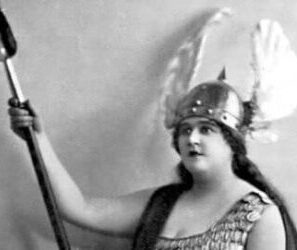The “big producer” is always a net loser for the firm.
Unless you’ve got a genius like Frank Lloyd Wright working for you—and maybe even then—the “big producer” is always a net loser for the firm.
Who hasn’t had to deal with a prima donna? These experienced Center members have learned the hard way that you’re much better off without them. But how to survive in the meantime?
Members
- Byron Johnson
- Tim Stewart
- Nathan Bares
- Bill Mitchell
- Derrick Van Mell
One of the members told the keystone story: a “big producer” in their service firm had made everyone feel he was indispensable. But when he finally got fired (shocked to learn people thought his behavior was atrocious), productivity of everyone around him shot up and—guess what?—it turned out his clients didn’t like him either.
Another member said two promising young managers have refused to work with the sales prima donna. They’re at risk of quitting. Another said, “Prima donnas leave bodies in their wake.” Another repeated a “trust to power” story in which a colleague confronted the prima donna CEO—who was transformed!
The 3 discussion questions
- When did you work with a prima donna? Why had they been hired?
- When do the benefits of a prima donna outweigh the fallout?
- How can you keep a prima donna from holding others back?
Best practice ideas
- Ripple effects: The costs of a prima donna are indirect and often silent. Good people shut down and retreat. Collaboration and quality decline. Employee lose respect for the leaders. The “values” statement and reward structures seem hypocritical. Good customers dislike prima donnas: they hurt the firm’s reputation
- The effects are hard to measure: The numbers the prima donnas produce are easily measured, but the ripple effects are less visible. Be sure your success metrics don’t reward lone wolf behaviors.
- Millennials won’t stand for it: Millennials now hold over half of all management positions, and prima donna-hood violates the Millennial ethos of collaboration.
- Prima donnas in a family business: One member’s prima donna was the spouse of the owner; it took a year to get them out of the business
- The importance of self-awareness: Most people don’t know they’re behaving inappropriately, and a polite and private but clear critique often is transformative. But if that doesn’t work, they’re probably unlike to change.
- Prima donnas useful during a start-up: That strong, driven, hyper-decisive personality is often just what’s needed in a start-up (Apple), but then they’ll have to go.
- If you have to keep them, even if just for a while: a) Isolate them by “encouraging” remote work, b) Don’t avoid the confrontation by rationalizing their value, c) Tell them staff meetings are optional, d) Have them report directly to you, minimize staff reporting to them, e) Keep inching up the bar on cooperative behavior, f) Put the “trigger event” for dismissal in writing


